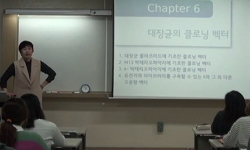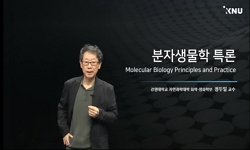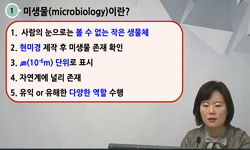Prior to the discovery and widespread use of antibiotics, bacteriophages (phages) were a potential solution for preventing and treating bacterial infections (1, 2). With the emergence of antimicrobial resistance, there has been a renewed interest in p...
http://chineseinput.net/에서 pinyin(병음)방식으로 중국어를 변환할 수 있습니다.
변환된 중국어를 복사하여 사용하시면 됩니다.
- 中文 을 입력하시려면 zhongwen을 입력하시고 space를누르시면됩니다.
- 北京 을 입력하시려면 beijing을 입력하시고 space를 누르시면 됩니다.
Accelerating the evolution of bacteriophages targeting Acinetobacter baumannii in host range expansion and determination of its background genetic mechanisms
한글로보기https://www.riss.kr/link?id=T16910750
- 저자
-
발행사항
[Seoul] : Graduate School, Yonsei University, 2024
-
학위논문사항
학위논문(박사) -- Graduate School, Yonsei University , Department of Medical Science , 2024.2
-
발행연도
2024
-
작성언어
영어
- 주제어
-
발행국(도시)
서울
-
기타서명
아시네토박터 바우마니를 사멸하는 박테리오파아지의 용균력 확장을 위한 진화 가속 시험 및 유전자 변화 규명
-
형태사항
x, 118장 : 삽화(일부천연색) ; 26 cm
-
일반주기명
지도교수: Dongeun Yong
-
UCI식별코드
I804:11046-000000552258
- 소장기관
-
0
상세조회 -
0
다운로드
부가정보
다국어 초록 (Multilingual Abstract)
Prior to the discovery and widespread use of antibiotics, bacteriophages (phages) were a potential solution for preventing and treating bacterial infections (1, 2). With the emergence of antimicrobial resistance, there has been a renewed interest in phages (3). However, a major limitation to using phage as therapy is their narrow host range, limiting their effectiveness to specific bacterial strains of the same species (4). To address this limitation, phage training, such as Appelmans protocol, has been proposed as a strategy for expanding the host range of phages (5). Despite its potential, there are currently no reports of the protocol being applied to phages targeting Acinetobacter baumannii, an opportunistic pathogen responsible for a variety of hospitalacquired infections with high mortality rate (6).
The aims of my dissertation were to apply the Appelmans protocol for expanding the host range of a phage cocktail targeting A. baumannii and evaluate the therapeutic potential of the expanded host range phages generated from the protocol. Additionally, the genetic mechanism underlying the protocol was also investigated to gain insights into its effectiveness.
Chapter I provides a brief overview of Acinetobacter baumannii and highlights the significant global concern surrounding carbapenem-resistant A. baumannii (CRAB) strains. Furthermore, it introduces the fundamental background on bacteriophages and phage therapy, along with their limitations and discusses various approaches to overcome these challenges.
Chapter II describes the application of the Appelmans protocol as a host range expansion method to broaden the host range of a phage cocktail targeting CRAB. The assessment of the host range expansion covered both the output cocktail and individual phage clones generated from the method. While the protocol consistently demonstrated the capability to expand the host range of the cocktail, it faced challenges when dealing with CRAB strains.
Chapter III delves into the screening and characterization process used to identify potential therapeutic phages. The focus was on evaluating individual phage clones generated from the Appelmans protocol for therapeutic applications. Throughout the evaluation, key factors such as host range stability,lytic growth, transduction potential, and the absence of toxin genes were rigorously examined. However, it is noteworthy that the expanded host range phages obtained from this protocol exhibited limited stability, raising concerns about their suitability for therapeutic purposes.
Chapter IV discusses the genetic insights into the Appelmans protocol’s mechanism, not only based on previous studies involving phages targeting different bacterial species but also when applied to the phage cocktail targeting CRAB. A bioinformatics workflow was established to analyze the ancestral of the expanded host range generated from the protocol and the finding revealed that they were recombinant derivatives of prophages induced from encountered bacterial strains. Favorable conditions and explanations for prophage induction during this protocol were proposed to support this genetic mechanism.
In conclusion, this dissertation focused on the potential and challenges of a phage training method, especially, the Appelmans protocol in expanding the host range of phages for therapeutic applications. The findings emphasize the importance of understanding the genetic mechanisms underlying phage-host interactions to optimize phage therapy strategies for combating antibioticresistant bacterial infections.
Parts of this dissertation are adapted from Vu TN, Clark JR, Jang E, D'Souza R, Nguyen LP, Pinto NA, et al. Appelmans protocol - A directed in vitro evolution enables induction and recombination of prophages with expanded host range. Virus Res. 2023;339:199272.










